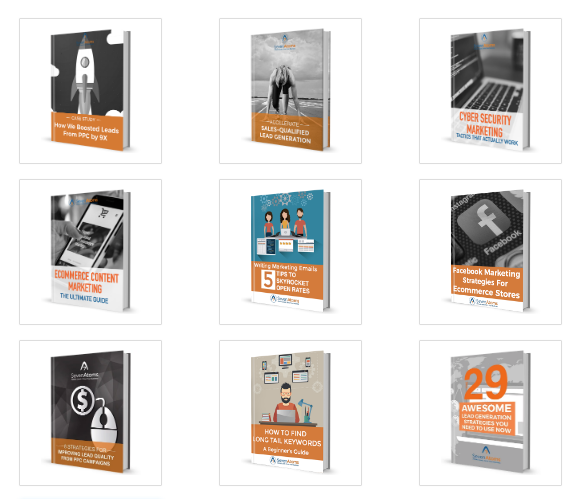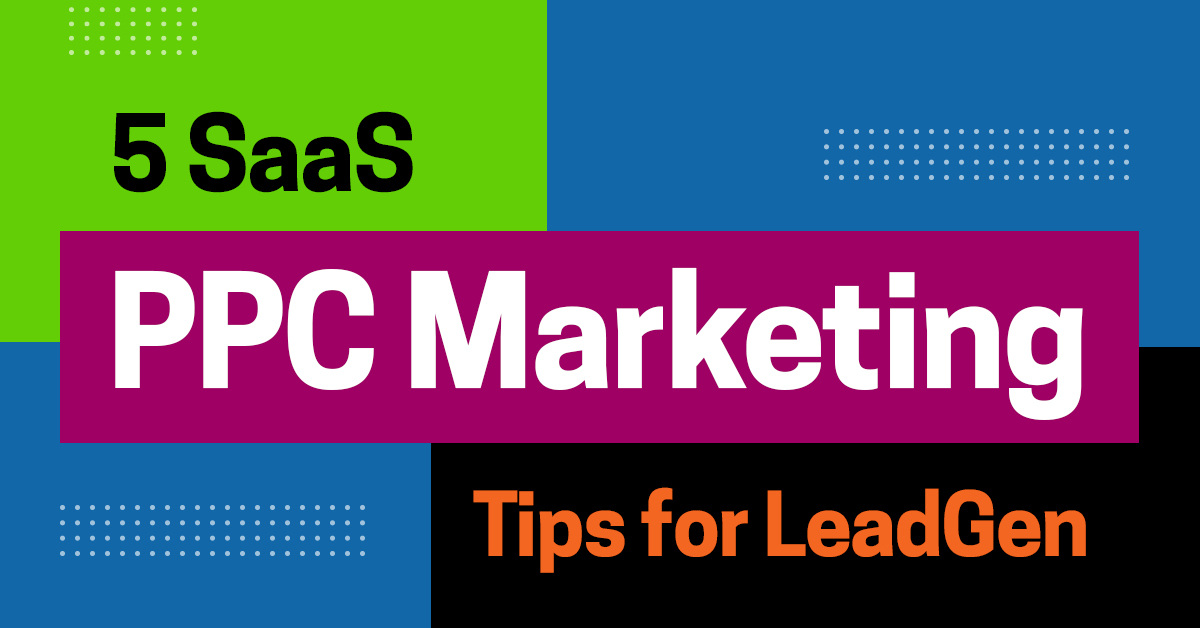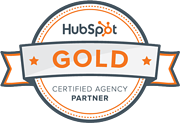Whether you’re a new SaaS startup or an established service that’s been around for a while, one thing is for sure: You need more customers. Everyone needs more customers! That’s the raison d’être for a business, to grow and thrive.
There are many ways of growing your brand and connecting with new potential customers, of course, and you’re no doubt doing many of them already. But if you really want to acquire clients and grow your subscriptions in a sustainable manner, one tool your business must consider is the use of pay-per-click (PPC) advertising.
Unlike SEO or inbound marketing, a well-implemented PPC campaign will make an immediate impact and get you in front of sales-qualified leads. Building and nuturing an audience that will evangelize your offering is valuable and should never be neglected, but PPC campaigns will start bringing prospective customers in literally overnight.
The downside of PPC marketing, of course, is right there in the name: It’s paid marketing. If you’re not doing it effectively, you’re throwing good money down the drain, and it’s highly unlikely that your business has that sort of cash to burn, especially if you’re a startup.
If you’re not sure about where to start with SaaS PPC, because you’re not an expert yourself and are worried about wasting money on ineffective campaigns, that’s perfectly normal! Building an effective SaaS PPC marketing campaign is made much easier with these five proven tips.
Tip #1: Start With a Compelling Offer
Let’s reverse the roles for a moment. Let’s say you’re looking for SaaS platform to solve an issue your business faces — for instance, you want a solution that will organize your file storage more effectively. You search for “effective file management” on Google and come across a paid search result that says something like “Filebox: The Best Way to Manage Your Files.”
You’ve never heard of this software before. All you know about it is the claim the paid ad is making. Would you click on it?
Odds are, you’d probably just scroll down and never give our friends at Filebox another thought. While not clicking on the ad means that Filebox wouldn’t be charged any money for the impression, they don’t get any benefit from it, either, and as you know, in the SaaS world, spent time is just as bad as wasted money.
Now, imagine that instead of an ad that just advertises the name of a product you’ve never heard of — and all you have to go on insofar as its effectiveness is the paid ad copy — your search returns a paid ad with a different result: “Free Ebook: 4 Ways to Better Organize Your Computer Files.”

You’d be much more likely to click on that one than the first ad, wouldn’t you? You click on this link, fill out the form to download the content you’re interested in, and feel better informed as to how to tackle the problem you had.
By filling out the form, the Filebox advertising team can now add you to a lead-nurturing workflow designed to entice you to become a customer — and arguably more important, you’re now familiar with Filebox as a brand, and more likely to think of them as experts in their chosen field. This means that you’re more likely to choose them as your SaaS when you’re ready to convert.
Very few leads will ever come to your site without reason; even the most enticing ad copy can only do so much. Give them a reason to click on your ads because it benefits them. This can be blog posts, ebooks, or video content. It can also be something more unique and interactive, like a survey or quiz.
What form the content takes doesn’t matter. The important thing is that a prospective lead will see it and think that it could hold a solution to their woes. In order to best do that, you’ll have to…
Tip #2: Put Yourself in Your Leads’ Shoes
There are a number of fantastic tools out there that will help you identify critical keywords that you should be targeting for tools like Google AdWords. Tools like SEMRush can tell you what people are searching for, but they can’t tell you what these people are thinking — so it’s important to use your head.
We’re sure that your SaaS is an excellently crafted, helpful product that will improve peoples’ lives and make things easier, but no matter how good the SaaS, one thing will always be true: People don’t sign up for a SaaS for fun! Every one of your clients — and your future clients — will be a customer of yours because your solution is precisely that: It solves a problem they’re having.
Remember the age-old marketing advice: People don’t buy a drill because they want to buy a drill, people buy a drill because they need to make a hole. Think about the people who will be using your software. Who are they? What work do they typically do? What problems are they having, and how is your SaaS a solution?
Not only will this help you identify opportunities for great content, as we discussed in point #1, it will also help you identify potential keywords, especially long-tail keywords, that are used less often but are more directly relevant to your customers’ needs — the difference between targeting “industrial strength drill” and “how do I make a hole in steel.” Targeting these keywords with your SaaS PPC campaigns will be less expensive (since there’s less competition) and will have higher rates of conversion.
Tip #3: Have an Easy Point of Entry
Thanks to tips #1 and #2, your SaaS PPC marketing is starting to draw leads to your site. But if their only options to really give your tool a go will cost them hundreds of dollars per month, you’ll probably fail to convert many, if not most of them. Price aversion can be a real thing, even for B2B companies!

When someone gets sent to a landing page further down the sales funnel and further along their customer journey, it’s important to offer an easy point of entry to your service. The two most common models for this are free trials and freemium options.
Free Trial Model
In this model, a lead can try your full product for free for a limited amount of time, typically two weeks to a month, with the objective of demonstrating how valuable your solution can be and convincing them to convert once their trial is over. This doesn’t require any extra work on the part of you or your developers, but a limited period of time may not be enough to truly integrate your SaaS solution into someone’s work to the point where they are relying on it.
Freemium Model
In a freemium model, a user can sign up for a limited version of your solution and use it for free as long as they want, but they will lack access to many, or most, of its features. This does require some up-front work to create another tier of access, and may cost you some money due to added server or bandwidth costs. However, a freemium model excels at making your tool an indispensable part of someone’s work, making them more likely to convert. It also develops regular users, meaning you’ll have a more consistently active community and people more likely to evangelize your product to others.
Combined Model
You don’t have to pick one or the other! You can have both freemium and free trial options. This means that customers can opt into the trial of their choice, or can use both — like using the freemium plan, and switching to the free trial when they’re considering an upgrade. The downside is that this requires the most up-front work, and can sometimes split your messaging, since you now have two models to advertise instead of one.
Tip #4: Target Competitor Brands
So you’ve heard that Filebox is the best solution for organizing your files, and you search them using your search engine of choice. However, the first result isn’t Filebox; it’s their competitor, Boxerly, promising a more intuitive, less expensive alternative to Filebox. While you may not wind up going with Boxerly, they’ve done the invaluable: They’ve put themselves on your radar when you were looking for their competitor.

Targeting competitor brands and brand terms as keywords is an excellent way to build your audience, and it lets you write ads that differentiate yourself from the competition. This can be expensive, but for SaaS PPC marketing, it’s a very useful tool. Just make sure that your competitors aren’t doing it to you, as well!
Tip #5: Always A/B Test. Always. (Seriously, Always.)
The beauty of modern digital marketing is in just how much data it generates and can collect. As someone running a SaaS, you are probably quite familiar with generating and retaining customer data and seeing if different approaches or different features deliver better results.

Always apply that mindset to your SaaS PPC campaigns. You should never just be running one campaign with one set of keywords and one set of ads that directs people to a single page. Your campaigns should target different keyword sets, use different wording, and even have different offers. This will help you refine your campaigns and ultimately see better results.
It’s important, however, to only A/B test one variant at a time. If you’re targeting one set of keywords to cybersecurity professionals above 50 years old in New York City, and one set of keywords to personal trainers between 25-35 in Miami, and one ad is doing much better than the other, you’ll have no idea which variable is the most impactful.
Tip #6: Don’t Neglect SEO
Okay, we lied. There were actually 6 tips in this article. Though, this tip isn’t directly about PPC marketing, so it all evens out.
You can have fantastic SaaS PPC marketing, but that doesn’t mean you should neglect SEO basics, either. PPC campaigns can get you in front of people overnight, but SEO is fantastic at building a stable presence that you don’t have to pay for. In fact, organic SEO and PPC are mutually complementary, and a proper strategy will leverage both to help grow your audience and convert more leads.
If you want help getting started with your SaaS PPC, SEO, or both, you should talk to an expert. Contact SevenAtoms today and let’s talk about how we can put our PPC expertise to work for your SaaS solution.









